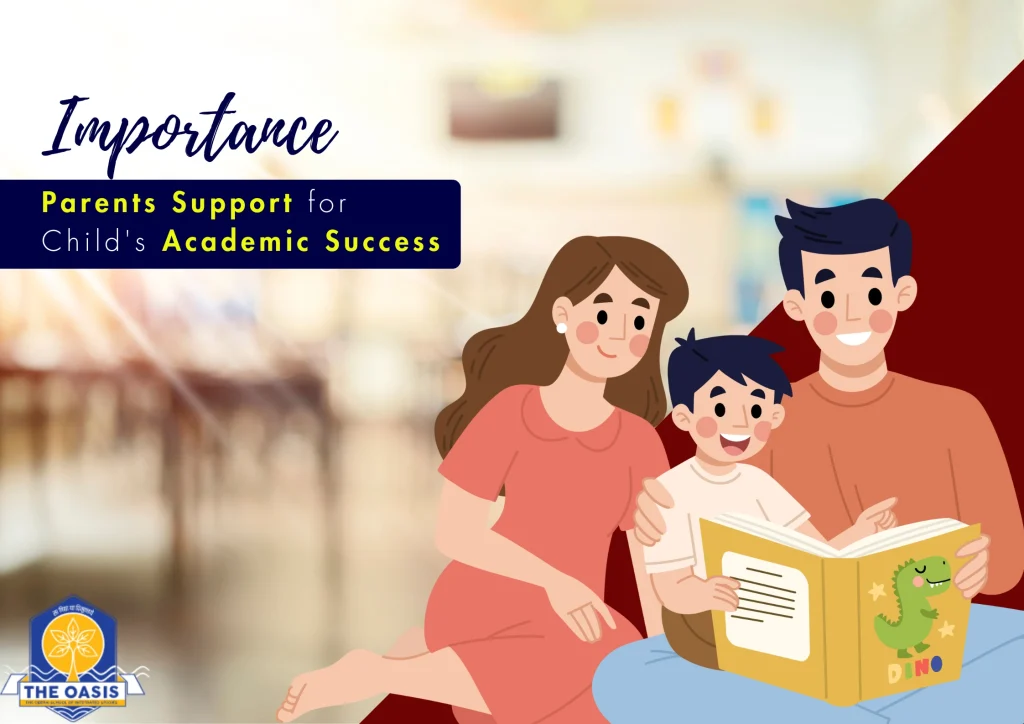
Academic success isn’t just about textbooks and tests; it is deeply rooted in emotional, social, and motivational support especially from parents. The importance of parents in shaping a child’s educational journey cannot be overstated. They are the first mentors, lifelong guides, and consistent motivators who lay the foundation of learning long before the child enters a classroom.
From preschool to high school and beyond, active and positive parental involvement can significantly boost a child’s academic performance, emotional stability, self-esteem, and attitude toward education.
In the context of Boys Boarding Schools in India, where children live away from their families, the importance of parents takes a unique and deeply emotional dimension. Even though students live on campus, consistent communication, emotional encouragement, and showing interest in their academic progress play a critical role in maintaining their motivation and mental well-being. A child in a boarding school still yearns for connection, and parental support acts as a powerful anchor in their academic journey.
- Understanding the Importance of Parents
- Forms of Parental Support That Matter
- How Parents Influence Academic Achievement
- Bridging the Gap in Boarding Schools
- Positive Outcomes of Parental Involvement
- The Role of Teachers and Schools
- Creating a Supportive Academic Environment at Home
- Parental Mindset and Attitude
- Frequently Asked Questions (FAQs)
Understanding the Importance of Parents

Parents are not only the primary caregivers but also the most influential figures in a child’s life. The importance of parents goes beyond providing food, shelter, and basic education.
Their involvement creates a learning-friendly environment that nurtures curiosity, creativity, and a consistent thirst for knowledge. When parents actively participate in their child’s education, they become facilitators of lifelong success.
Their influence can:
- Foster discipline, time management, and personal responsibility.
- Create a stable and encouraging home learning environment.
- Reinforce the importance of education through positive reinforcement and shared goals.
- Develop communication, empathy, and critical thinking skills through regular and open dialogue.
- Help in managing stress and academic pressure through guidance and reassurance.
Forms of Parental Support That Matter

Support from parents can come in different forms, and each type adds a layer of security, confidence, and encouragement to a child’s academic growth.
Here are some key ways parents contribute to their child’s educational success:
Emotional Support: Encouraging children after failures or setbacks builds resilience, persistence, and emotional intelligence, which are crucial for academic growth. Educational Involvement: Assisting with homework, attending parent-teacher meetings, being involved in school functions, and staying updated with school newsletters and academic calendars. Resource Support: Providing access to books, online resources, tutoring, educational toys, and a study-friendly atmosphere to aid in academic understanding. Motivational Support: Inspiring children to set goals, celebrating small victories, appreciating effort over results, and promoting a love for lifelong learning. Behavioral Modeling: Demonstrating positive learning habits, showing interest in reading, and making education a family value.How Parents Influence Academic Achievement

The importance of parents reflects strongly in their ability to positively influence a child’s academic achievements. Numerous studies have consistently shown that children whose parents are actively involved in their education tend to perform significantly better in school.
This includes higher test scores, better attendance, improved behavior, enhanced communication skills, and increased chances of pursuing higher education.
Parental expectations play a significant role. When parents set realistic yet challenging academic goals for their children, it fosters ambition, accountability, and a growth mindset. Children are more likely to take ownership of their education when they feel supported and guided at home.
Bridging the Gap in Boarding Schools
In boarding school setups, the physical distance can sometimes create a perception that parental involvement becomes secondary. However, the opposite is true.
The importance of parents becomes even more critical in these situations, as children need to feel emotionally connected, reassured, and supported despite the distance.
Ways parents can stay involved in their child’s education while they’re in boarding schools:
- Regular video and phone calls to discuss their day, classes, emotions, and goals.
- Attending school events, exhibitions, sports days, and academic meetings whenever possible.
- Sending handwritten letters, care packages, or thoughtful emails that make children feel valued.
- Maintaining regular communication with teachers and school faculty to understand the child’s progress.
- Supporting school initiatives and encouraging participation in extracurricular activities.
Positive Outcomes of Parental Involvement
The active presence and involvement of parents bring long-term, multifaceted benefits to children, far beyond just academic scores.
These include:
- Stronger parent-child relationships built on trust, empathy, and communication.
- Better problem-solving and decision-making abilities due to improved self-confidence.
- Greater emotional stability and resilience in dealing with academic and social challenges.
- Higher self-esteem and belief in personal abilities.
- Stronger values, cultural understanding, and moral development.
The Role of Teachers and Schools
While discussing the importance of parents, it is equally essential to highlight the indispensable role of schools and teachers. A collaborative approach where educators work closely with parents creates a consistent support system that encourages children to perform at their full potential.
Schools can facilitate this connection through regular communication, organizing parent workshops, newsletters, academic discussions, and interactive parent-child learning sessions.
Creating a Supportive Academic Environment at Home

Parents don’t have to be subject experts to help their children excel academically. What matters more is the environment they create at home, which should foster learning, curiosity, and emotional well-being:
- Designating a quiet and organized study space that minimizes distractions.
- Establishing a consistent daily routine that balances study, play, meals, and rest.
- Encouraging reading habits from an early age by introducing books, stories, and educational games.
- Monitoring and limiting distractions such as excessive screen time or noise.
- Maintaining open communication about school experiences, challenges, and successes.
- Showing genuine interest in assignments, exams, and school activities.
Parental Mindset and Attitude
Children often mirror the mindset, habits, and values of their parents. The importance of parents in modeling behavior and attitudes cannot be ignored.
When children observe their parents valuing education, showing curiosity, and taking pride in knowledge, they are more likely to develop the same attitudes.
Parents who:
- Demonstrate a passion for lifelong learning.
- Show interest in school events, assignments, and student progress.
- Respect their child’s unique pace, learning style, and potential.
- Stay positive even in moments of academic difficulty.



